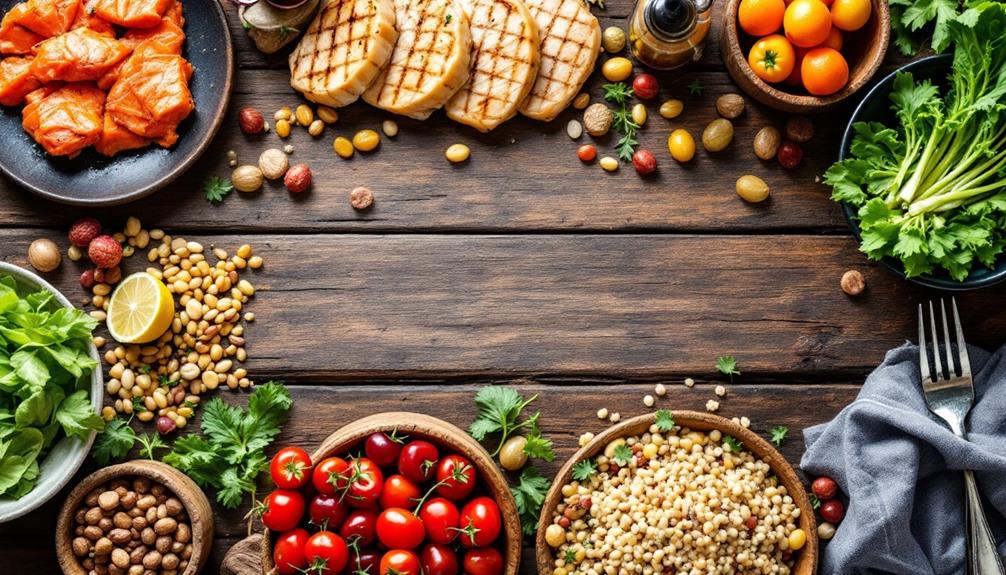To support muscle growth, you should include various lean protein sources in your diet. Start with chicken breast and turkey, both packed with essential amino acids and low in fat. Fish is another great option, offering Omega-3 fatty acids for recovery. Lean cuts of beef, like sirloin, provide high-quality protein and crucial nutrients. Don't forget eggs and egg whites; they're a complete source of protein and easy to prepare. If you prefer plant-based options, lentils, quinoa, and tofu are excellent choices. You might also consider Greek yogurt for a nutritious boost. There's so much more to explore!
Core Insight
- Chicken breast is an excellent source of lean protein, offering 30 grams of protein per 100 grams, ideal for muscle gain.
- Turkey provides a complete amino acid profile and is low in fat, making it a smart choice for lean muscle growth.
- Fish is rich in Omega-3 fatty acids, promoting muscle recovery while delivering lean protein for effective muscle building.
- Lean cuts of beef, like sirloin and tenderloin, offer high-quality protein and essential vitamins to support muscle repair and growth.
- Eggs and egg whites are nutrient-dense, complete protein sources that aid in muscle growth and recovery while being low in calories.
Chicken Breast
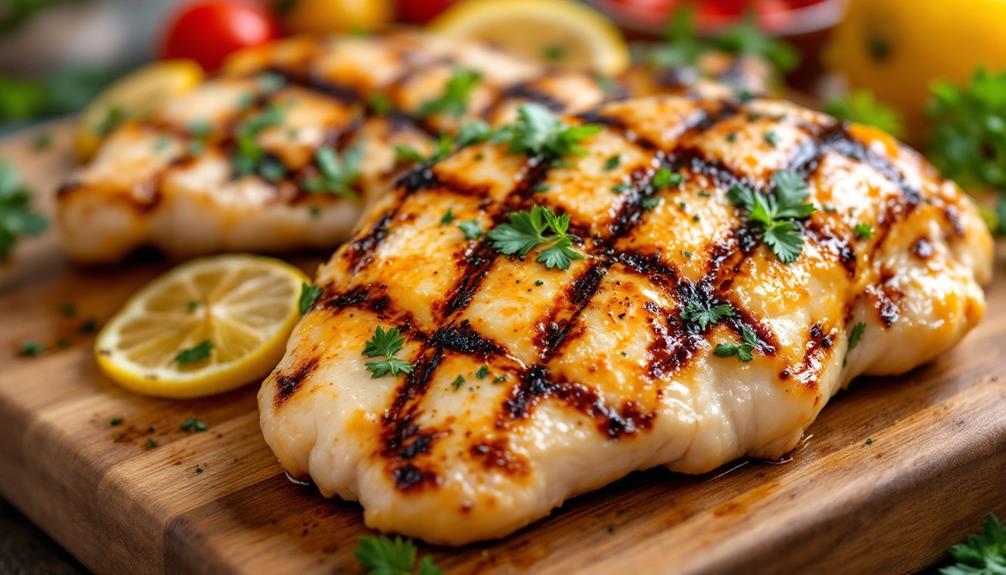
When building muscle, adding chicken breast to your diet is a smart choice. It provides about 30 grams of protein for every 100 grams, making it a great source of lean protein. Since it's low in fat, it's ideal for those who want to gain muscle without extra calories. Chicken breast also helps with recovery after workouts, allowing your muscles to repair and grow stronger. Like high-quality protein powders, it offers essential amino acids that support muscle growth.
You can cook chicken breast in many ways—grilling, baking, or sautéing are all good options. Pair it with whole grains and vegetables for a well-rounded meal that gives you important nutrients. Try to include chicken breast in your meals regularly for the best results in muscle growth. Remember, sticking to your plan is important, so make chicken breast a key part of your diet as you work towards your fitness goals.
Turkey
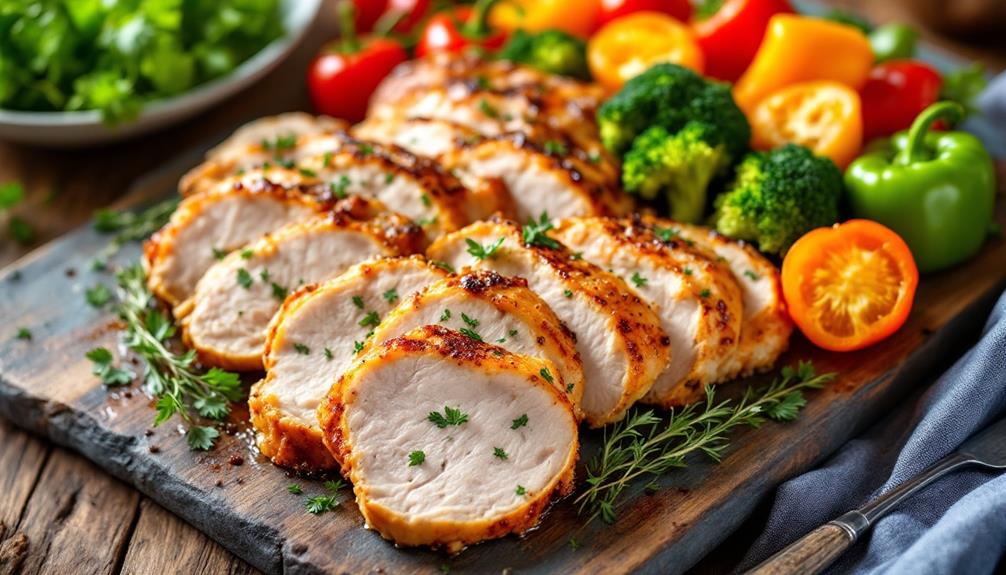
Turkey is a great source of lean protein that can help build muscle. It's low in fat and full of essential amino acids, making it perfect for muscle growth and repair. Like whey protein powders, turkey offers a complete amino acid profile, which is important for muscle protein synthesis. Its high protein content and low calorie-to-protein ratio make it a smart choice for anyone looking to gain lean muscle.
When you add turkey to your diet, you're getting more than just protein. It also provides important nutrients like zinc and B vitamins, which help with energy and immune function.
You can prepare turkey in many ways—grilled, baked, or in a hearty stew. Just make sure to choose lean cuts, like turkey breast, to get the most protein while keeping fat low.
Including turkey in your meals can help you reach your protein goals and support your muscle-building efforts. So, why not give it a try?
Fish
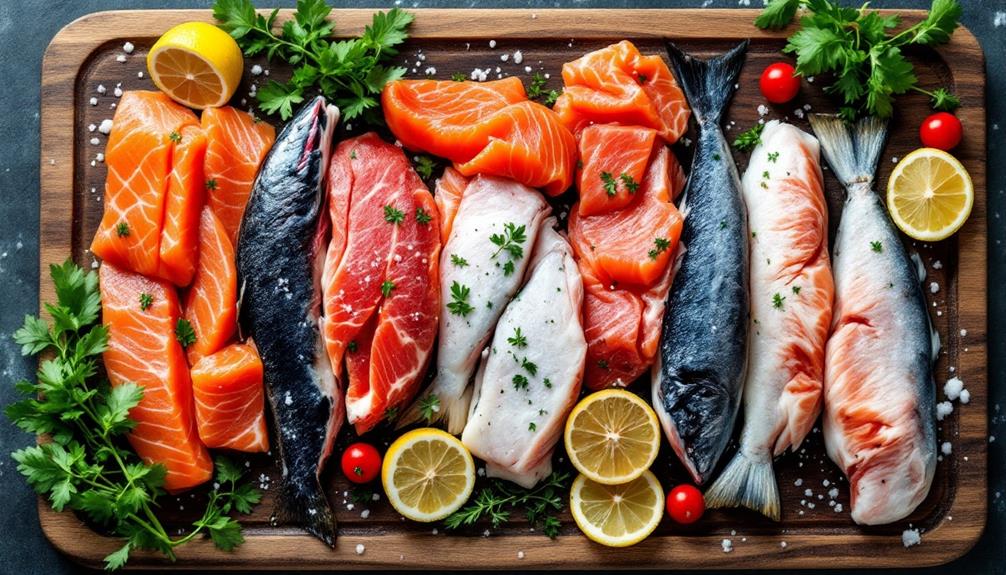
Fish is a great source of lean protein that can help you build muscle. It is packed with essential nutrients and offers many health benefits. While fish is a fantastic option, some people prefer protein bars because they are convenient and easy to carry. These bars can be a helpful addition to your diet. Here are three reasons to eat fish:
- High in Omega-3 Fatty Acids: These healthy fats help your muscles recover and reduce inflammation, making your workouts more effective.
- Low in Saturated Fat: Fish usually has less saturated fat than other protein sources, which is good for your heart.
- Variety of Options: There are many types of fish, like salmon and tilapia, so you can always find something you enjoy. This variety keeps meals interesting and provides a range of nutrients.
Adding fish to your meals is an easy way to support your muscle-building goals.
Lean Cuts of Beef
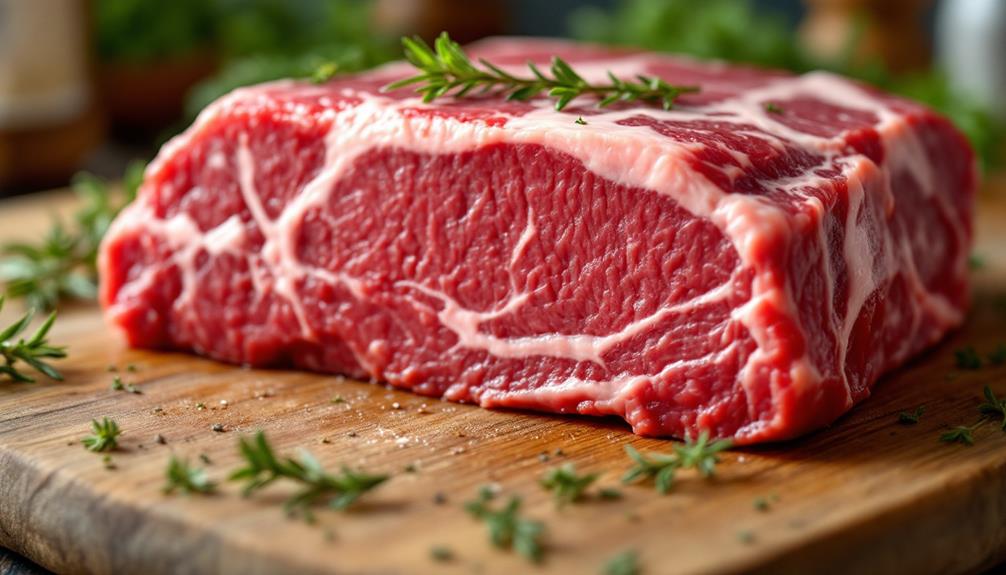
While fish is a great option for lean protein, lean cuts of beef are also important for building muscle. Lean beef offers high-quality protein, which helps repair and grow muscles. Cuts like sirloin, tenderloin, and eye of round are lower in fat but still provide key nutrients. If you want to boost your protein intake, whey protein powders can be a good addition to your diet, giving you concentrated protein with all the amino acids your body needs.
Including lean beef in your meals also gives you essential vitamins and minerals, like iron and zinc, that support overall health. These nutrients can improve your performance in the gym and help with recovery after workouts.
To get the most benefits, consider grilling or broiling your beef instead of frying it. This way, you keep it lean and full of protein, helping you meet your muscle-building goals effectively.
Eggs and Egg Whites

Eggs and egg whites are excellent sources of protein that help with muscle growth and recovery. They are versatile and full of important nutrients. Here's why you should think about adding them to your diet:
- Complete Protein Source: Eggs contain all nine essential amino acids that your body needs for muscle repair and growth. They are a high-quality protein option that is easy to digest.
- Low in Calories: Whole eggs are packed with nutrients but low in calories. This makes them a great choice if you want to keep a healthy weight while building muscle.
- Rich in Vitamins and Minerals: Eggs are a good source of vitamins like B12 and D, as well as minerals like selenium. These nutrients support your overall health and performance.
Including eggs in your meals can help you boost your protein intake effectively.
Plant-Based Proteins
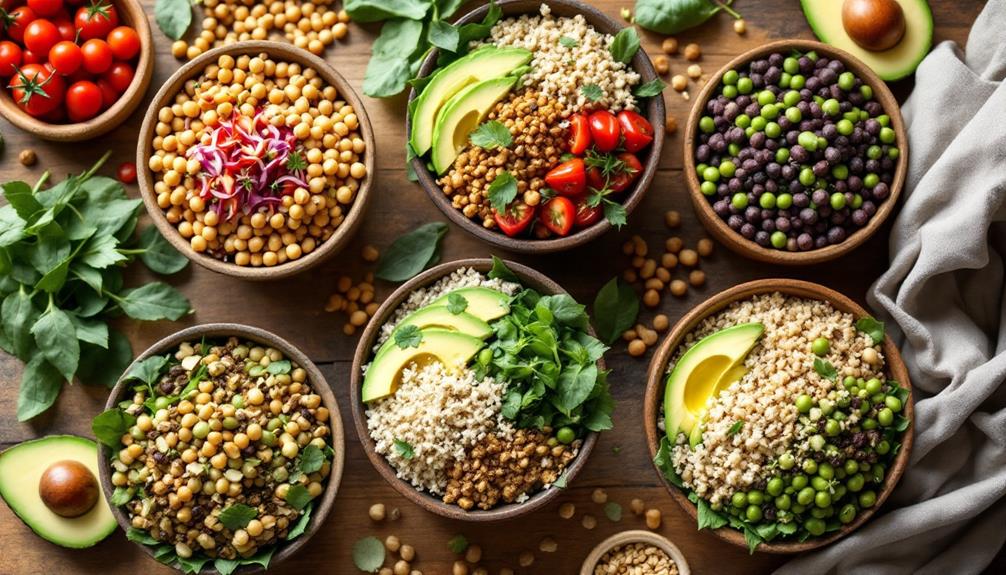
If you're looking for different protein sources to help build muscle, plant-based proteins are a great choice. They are not only high in protein but also full of important nutrients. Some people who work out often choose grass-fed whey protein because it has a complete amino acid profile. However, foods like lentils, chickpeas, and quinoa can provide all the essential amino acids when paired with other foods.
You can easily add these proteins to your meals. Try putting them in salads, soups, or smoothies. Tofu and tempeh are also good alternatives to meat and can be used in many different recipes.
Don't forget about nuts and seeds! They make for a tasty snack and can add extra flavor and nutrition to your meals.
Greek Yogurt
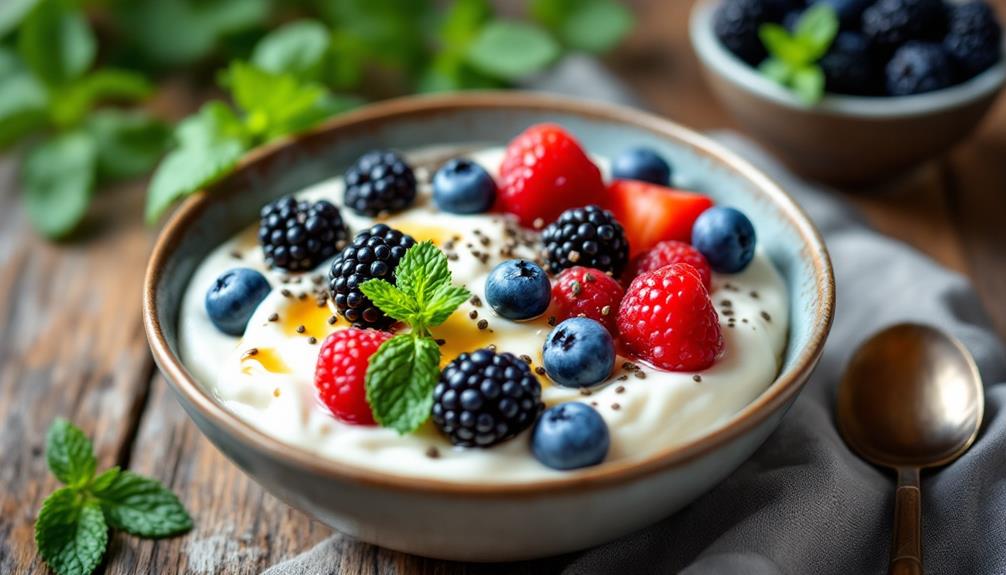
- High Protein Content: A typical serving of Greek yogurt has about 20 grams of protein. This makes it a great choice for recovery after workouts. It helps replenish energy quickly, just like post-workout carb powders.
- Low in Sugar: Greek yogurt has less sugar than regular yogurt. This means you can maintain your energy without adding extra calories.
- Versatile: You can easily add Greek yogurt to your meals. Enjoy it plain, mix it with fruits, or use it as a base for smoothies.
Frequently Asked Questions
How Much Protein Do I Need for Muscle Growth Daily?
You need about 1.6 to 2.2 grams of protein per kilogram of body weight daily for best muscle growth. Adjust your intake based on your activity level and fitness goals to maximize results.
Can I Build Muscle With Only Plant-Based Proteins?
Can you truly build muscle with just plant-based proteins? Absolutely! With careful planning, you can meet your protein needs through legumes, nuts, and grains, ensuring you get all essential amino acids for peak growth.
What Are the Best Cooking Methods for Preserving Protein?
To preserve protein during cooking, you should steam or poach foods instead of frying. Avoid high temperatures and long cooking times, as they can denature proteins. Quick methods help maintain their nutritional value effectively.
Are There Any Protein Supplements Worth Considering?
Oh sure, let's talk about protein supplements! If you're after convenience, whey and plant-based powders can help. Just remember, they're not magic potions—real food should still be your go-to for muscle gains.
How Do Different Proteins Affect Recovery After Workouts?
Different proteins impact recovery by varying the amino acid profiles and absorption rates. If you consume whey protein, you'll benefit from quick digestion, while casein provides a slow release, aiding muscle repair over time.

